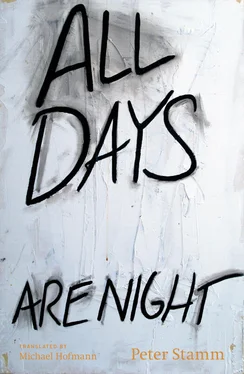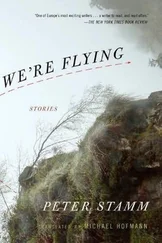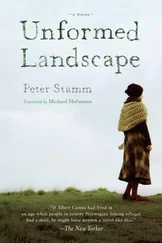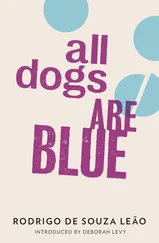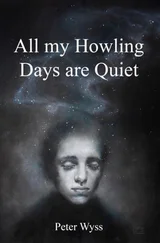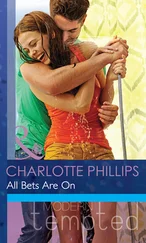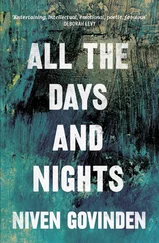Peter Stamm - All Days Are Night
Здесь есть возможность читать онлайн «Peter Stamm - All Days Are Night» весь текст электронной книги совершенно бесплатно (целиком полную версию без сокращений). В некоторых случаях можно слушать аудио, скачать через торрент в формате fb2 и присутствует краткое содержание. Год выпуска: 2014, Издательство: Other Press, Жанр: Современная проза, на английском языке. Описание произведения, (предисловие) а так же отзывы посетителей доступны на портале библиотеки ЛибКат.
- Название:All Days Are Night
- Автор:
- Издательство:Other Press
- Жанр:
- Год:2014
- ISBN:нет данных
- Рейтинг книги:3 / 5. Голосов: 1
-
Избранное:Добавить в избранное
- Отзывы:
-
Ваша оценка:
- 60
- 1
- 2
- 3
- 4
- 5
All Days Are Night: краткое содержание, описание и аннотация
Предлагаем к чтению аннотацию, описание, краткое содержание или предисловие (зависит от того, что написал сам автор книги «All Days Are Night»). Если вы не нашли необходимую информацию о книге — напишите в комментариях, мы постараемся отыскать её.
All Days Are Night — читать онлайн бесплатно полную книгу (весь текст) целиком
Ниже представлен текст книги, разбитый по страницам. Система сохранения места последней прочитанной страницы, позволяет с удобством читать онлайн бесплатно книгу «All Days Are Night», без необходимости каждый раз заново искать на чём Вы остановились. Поставьте закладку, и сможете в любой момент перейти на страницу, на которой закончили чтение.
Интервал:
Закладка:
Not thinking anymore, she wrote to Hubert that she admired his work and was sorry not to see any newer pictures of his posted on his home page. After a brief hesitation she wrote: And as I’ve just seen, you’re good-looking as well. She signed herself Julie, and pressed Send.
When she went to bed, Matthias still wasn’t home. She woke at five and saw him lying beside her. She thought of Hubert and imagined meeting him in his studio. She knocked, he opened the door and showed her in. Without taking off her raincoat, she walked through the room and looked around. The studio looked like something from an old Hollywood film, with high windows, a potbellied stove, and a big easel. Hubert watched her with the blunt curiosity that had struck her in the course of their interview, and pointed to an old leather sofa. She ignored him and stepped up to the window through which she could see the rooftops of the city, and away in the distance, the Eiffel Tower. There were dark rain clouds in the sky, but at the horizon the cloud cover was broken and the sun shone through and illuminated the pale gray roofs of the city with its dazzling light. Gillian heard Hubert walk up behind her. Finally she turned around and took off her raincoat. Underneath she had on a simple black dress. He smiled, took her coat, and tossed it over a chair back. Then he picked up a notebook and a charcoal crayon from a low table, and started drawing. Gillian shut her eyes. She heard the scratch of charcoal over the paper.
Matthias turned over. Gillian quietly got up and went out onto the balcony. Although it was cold, she didn’t feel it. It was daybreak, the birds were rowing, it all sounded as though she was in a glass bowl. In the distance she heard the occasional sounds of sparse traffic and the shunting of locomotives.
Before long, Hubert and Gillian were writing to each other every day. Matthias wondered why she was checking her e-mail all the time. She shrugged. Under cover of her pseudonym, Gillian asked Hubert why he wanted his models to undress when he claimed their bodies didn’t interest him. He answered in almost identical words to those he had used at the interview, so she didn’t believe him. He wrote about the encounter as part of the process, of the right moment, of the impossibility of planning. He asked her for her picture. Gillian wrote back that she didn’t have any photographs of herself.
Have we ever met?
Gillian didn’t see his e-mail till the next morning. She had to go to Hamburg for a couple of days to record a feature about an elderly writer who had produced a kind of autobiography. Her flight didn’t leave until midday, and she was still in bed when Matthias left for work. He kissed her goodbye.
She had slept badly and felt depressed without knowing why. Even before her first cup of coffee, she sat down at the computer. She told Hubert that she didn’t want to model for him. She had imagined him taking her photograph in her apartment and it hadn’t felt right. Not the nudity, but his presence in her apartment, his looking around and making a picture of her life. No hard feelings.
She drank her coffee and smoked a cigarette. While she showered, she imagined Hubert painting her portrait. She looked around his studio. He pointed to an old leather sofa. Without taking off her coat, she sat down. He took a chair, sat down facing her, and started sketching her. After a time he put down his sketchbook and appeared irresolute. At last he said, very softly so that she barely understood, she could change behind the partition.
When Gillian reappeared, naked, from behind the partition, Hubert was just loading film into a big camera. Not looking up, he asked her to lie on the sofa with a book. He peered into the camera’s viewfinder, she couldn’t see his eyes, but sensed his cold, prying look.
Gillian packed her traveling bag. She still had time, and checked her e-mails. Hubert had written back already. He wrote that if she didn’t want to be photographed in her apartment, they could meet at his studio. You’re giving yourself away, she thought, you’re changing the rules as you’re going along.
Their e-mails were batted back and forth in double-quick time.
Are you alone?
You wish.
So you are.
Now you’re taking advantage of me.
How so?
You’re imagining me.
What alternative do I have if you refuse to show yourself to me?
Why do you only paint women? And why naked?
This time it took longer for an answer to come. His answer disappointed Gillian. She thought a moment, typed a question, deleted it. Wrote it again.
Do you sleep with your models?
When she fired off the e-mail, there was another one from Hubert. He wrote that the model’s nakedness created upset, disturbance, erotic tension. Art was the harnessing of this energy in a painting.
Gillian regretted her question now. Again, Hubert’s answer took a while.
Shall we meet?
That’s unprofessional.
Shall we meet?
You’re repeating yourself.
Life is repetition.
No.
Then what do you want?
Gillian thought. She typed her answer, read it back, and smiled as she pressed Send. She didn’t wait for his reply and switched off the computer. The sound of the ventilator ceased, and the apartment became very quiet.
In Hamburg it was raining. Gillian took a taxi from the airport to the author’s apartment. The film team was already there, and the author was getting annoyed because the cameraman wanted to rearrange his living room. He also refused makeup, even though he had probably worn it hundreds of times. Gillian explained that it was to allow him to look his most natural. He seemed at least to like her, and over time he unwound, and even started flirting with her a bit. They filmed him sitting at his desk and in front of his bookshelves, out walking along the waterfront, in a smart café he would never dream of going to, as he explained. Gillian asked him to write something down for her, but it turned out he had nothing to write on. She lent him her black Moleskine, and he scribbled something in there. Then they trooped back to his house to film the interview. Gillian sat beside the camera. When she opened the notebook to review her questions, she saw what he had written: This engenders such a clichéd view of the writer: television is the pits. She didn’t flinch and asked her first question.
The author seemed offended that he was getting more critical attention, and more readers, for his autobiography than for his ambitious experimental oeuvre.
Even though this book is just as fictitious, he said.
And what is reality?
If it’s reality you want, I suggest you look out the window.
Then why write?
He looked at her with a pitying smile. For professional reasons, a colleague of mine used to say. And another said it was lust, greed, and vanity that motivated him. In my own case, it’s presumably …
The soundman said he had picked up a noise in the background, could he possibly repeat the last few sentences, but this the author refused to do.
That’s the thing with reality, he said, you can’t repeat it to order, you can’t correct it. Perhaps we should read more books.
Would you do something else if you had your time again? Gillian asked.
The writer was suddenly angry and said he was tired, and gave monosyllabic replies to her remaining questions. At the end of four hours, Gillian said goodbye. She would manage to knock her material into a four-minute feature, but it would have even less to do with reality than the three hundred and fifty pages of the autobiography (not really) under discussion.
While in Hamburg, she didn’t check Miss Julie’s e-mail. She no longer felt comfortable with her part in the correspondence.
When she got home four days later, though, she did. Hubert had written to her twice, once immediately, moments after she had turned off her own computer, and then the next day. In the first he offered a detailed description of how he would kiss her. He had assembled a pretty accurate picture of her, and wrote about her cropped hair and slender waist. In the second e-mail he apologized for the first. He said he had allowed himself to be carried away and was sorry. Gillian didn’t know which of the e-mails to be more upset about. She decided she would meet Hubert. She wrote that she didn’t want him to paint her or kiss her, but she would agree to have a drink with him. As a venue she suggested a café in an outer suburb where she had once met a curator. She looked at the time.
Читать дальшеИнтервал:
Закладка:
Похожие книги на «All Days Are Night»
Представляем Вашему вниманию похожие книги на «All Days Are Night» списком для выбора. Мы отобрали схожую по названию и смыслу литературу в надежде предоставить читателям больше вариантов отыскать новые, интересные, ещё непрочитанные произведения.
Обсуждение, отзывы о книге «All Days Are Night» и просто собственные мнения читателей. Оставьте ваши комментарии, напишите, что Вы думаете о произведении, его смысле или главных героях. Укажите что конкретно понравилось, а что нет, и почему Вы так считаете.
